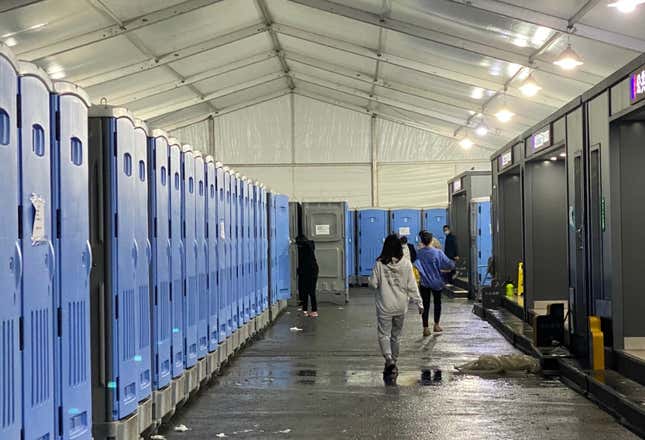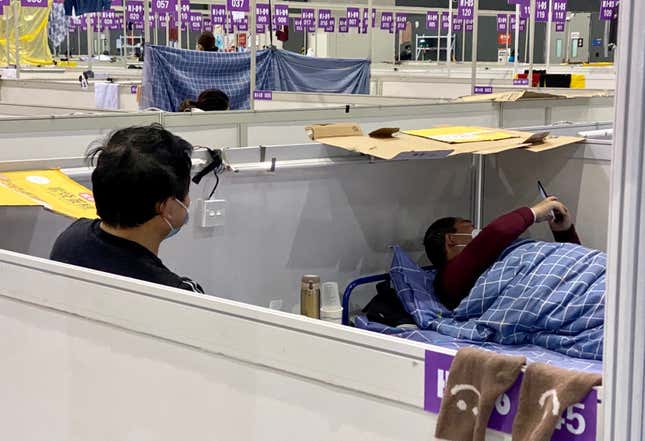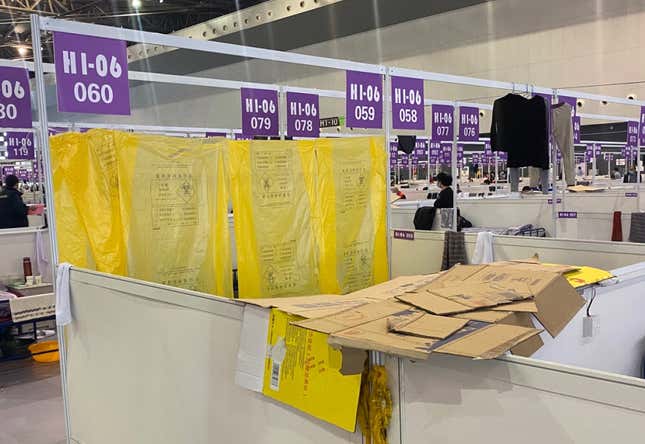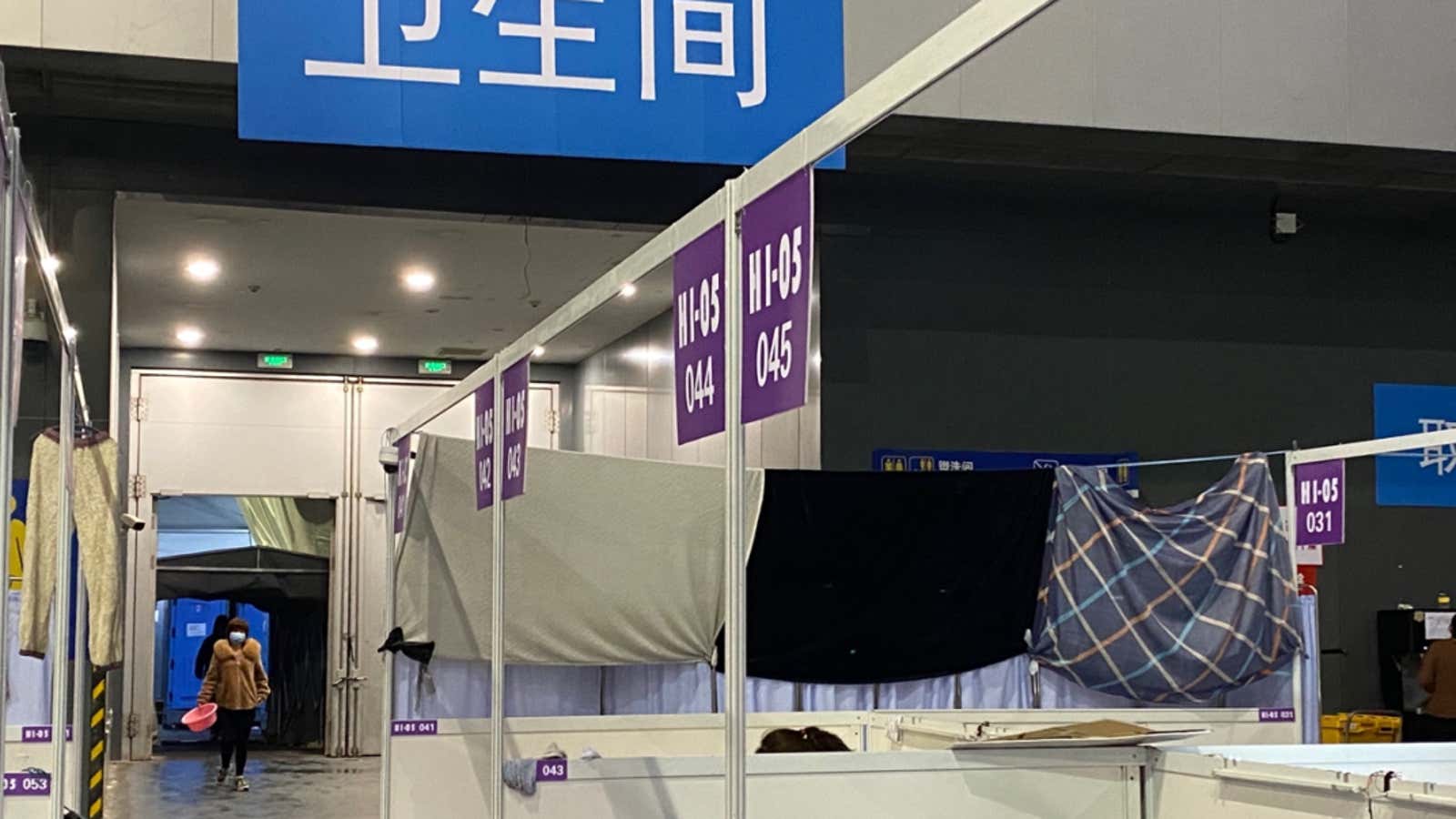After Leona tested positive for covid-19, she was ordered to go to a quarantine center in Shanghai, part of the city’s aggressive campaign to curb the spread of the virus.
Upon arrival, she was handed a small plastic wash bowl and a toothbrush. The site, a converted exhibition hall, had no showers, sinks, running water, or real toilets. The rows of porta-potties, shared by thousands of quarantined people, were an unsanitary mess.
“The whole place stinks of excreta,” said Leona. “I even try not to drink water, so that I don’t need to go to the toilet.”
And because the bright overhead lights are kept on the whole day, some have covered their beds with scrap pieces of cardboard so they can get some rest. “We are not treated like human beings,” she said. “[You just] accept being an animal or livestock.”
For many residents of China’s financial capital, the covid centers are their first personal encounter with Beijing’s brand of authoritarianism. The city, which boasts one of the highest standards of living in mainland China, had relied on a flexible model towards zero-covid, only locking down buildings or compounds at a time. That is, until national authorities recently intervened.

Shanghai’s struggle to contain the outbreak
Officials are now starting to loosen up their city-wide lockdown, but covid-19 numbers are still soaring. The city registered 25,000 new cases on Wednesday (Apr. 13). The vast majority are mild, but the official policy is to transfer all who test positive and their close contacts to isolation centers.
Authorities haven’t released details about conditions at the sites, which can vary. But the internet is full of complaints from people who claim they are atrocious, including multiple videos on WeChat showing rain pouring through the roof and patients’ beds covered in tarps.
“Thousands of patients are put in commonly shared spaces with no heating or AC and no access to medicines,” Wei, a woman in another government quarantine center, told Quartz. “This place has a high risk of people getting even sicker as their conditions could quickly deteriorate.”
Wei and her boyfriend, who was sent to a separate site, experienced high fevers and coughs. She reports windows are sealed at her facility to prevent the virus from spreading, but depriving those who are inside from fresh air. “We are treated like prisoners,” she said.


It’s not just covid patients who are struggling. A few healthcare workers, who are dressed in heavy protective gear, have fainted, according to local news media (link in Chinese).
For young people, this is an unrecognizable China
The draconian measures in Shanghai and elsewhere have been compared by some to Mao Zedong’s Cultural Revolution, but for young Shanghainese, who have only experienced a relatively open and prosperous China, they have come as a shock.
“In everyday life most Chinese have very little interaction with the state, now a lot of them have been forced to realize that it is anything but benevolent, especially the one in Beijing imposing its will on Shanghai,” one political pundit explained in his blog.
“Many of their acts and decisions come across as cruel, [callous], nonsensical and arbitrary. People under 40 have never before in their lifetimes experienced such an environment,” he wrote.
After her stay at the center, Wei is now planning to move overseas, and she expects others will do the same.
“They don’t feel safe living in such an environment where the government dictates every move,” she said. “There are no rights whatsoever and you can lose your freedom at anytime…you are trapped in a system and you need to obey. This is not a safe place that you can call home.”
